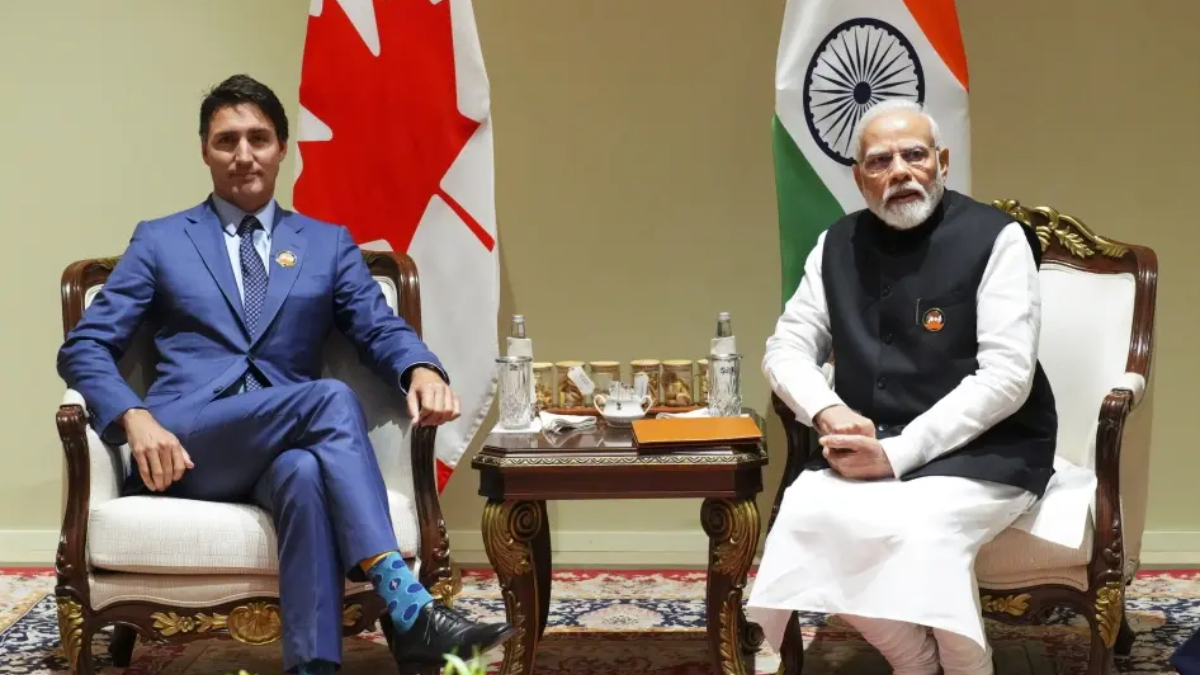
Summary – India’s call for Canadian action against anti-India elements operating on its soil raises significant diplomatic and security implications.,
Article –
India has recently intensified diplomatic pressure on Canada, urging authorities to take definitive action against anti-India groups alleged to be operating within Canadian territory. This development has attracted global attention given the implications it holds for bilateral relations, regional security, and global diplomatic dynamics. The escalating tensions underscore concerns around sovereignty, diaspora politics, and international cooperation against cross-border threats.
Background
The timeline of recent interactions between India and Canada began escalating over the past year, as India accused certain groups based in Canada of harboring and supporting individuals and organizations that challenge India’s territorial integrity and sovereignty. India’s Ministry of External Affairs has conveyed these concerns both publicly and through diplomatic channels, requesting Canada’s cooperation in curbing activities that India deems detrimental to its national security.
This buildup followed incidents where symbolic displays and protests by sections of the Indian diaspora in Canada appeared to challenge India’s governance over specific regions, stirring controversy. Canada’s commitment to free speech and assembly, combined with its multicultural makeup, has complicated how such activities are perceived and handled. Indian officials have repeatedly emphasized that these elements threaten the unity and sovereign fabric of India, thereby seeking stronger Canadian law enforcement responses.
Key actors in this diplomatic friction include the governments of India and Canada, with Prime Minister Narendra Modi leading India’s efforts to safeguard national sovereignty, and Canadian leadership balancing domestic civil liberties with international diplomatic responsibilities. International observers and organizations focused on diplomacy and national security have monitored the situation, considering its potential ripple effects.
The Global Impact
The intensifying discourse between India and Canada extends beyond bilateral concerns, reflecting broader geopolitical and economic implications. India, as the world’s largest democracy with an expanding global footprint, is sensitive to narratives and activities it perceives as separatist or seditious. Canada’s role as a western liberal democracy with a significant South Asian diaspora shapes its domestic and foreign policy decisions distinctly.
Economically, both countries maintain robust trade relations and mutual investments that could be impacted if diplomatic tensions escalate further. Moreover, the situation resonates with diaspora politics worldwide, influencing how host countries engage with immigrant communities and address cross-border political disputes.
The matter also influences global discussions on sovereignty, counter-terrorism, and diaspora engagement in homeland politics. It exemplifies the challenges nations face when domestic policies intersect with international diplomatic concerns, requiring nuanced, balanced approaches from all stakeholders.
Reactions from the World Stage
International reactions have varied, reflecting differing national interests and diplomatic priorities. Several countries and global institutions have advocated for peaceful dialogue and respect for sovereignty, urging Canada and India to resolve their differences through constructive engagement.
Some allies of India have expressed support for India’s position on preserving territorial integrity, while others underscore the importance of upholding democratic freedoms such as speech and assembly within Canada. International experts on diplomacy have noted that the issue requires careful navigation to avoid exacerbating tensions while ensuring legitimate concerns about security and sovereignty are addressed.
Canada continues to balance its internal commitment to pluralism with external diplomatic pressures. Canadian authorities have indicated willingness to investigate any unlawful activities but emphasize adherence to Canadian legal frameworks and human rights standards.
What Comes Next?
Looking ahead, the trajectory of India-Canada relations will likely hinge on diplomatic negotiations, law enforcement actions, and engagement with diaspora communities. Both countries have vested interests in maintaining positive ties given their economic and strategic cooperation globally.
Possible outcomes include:
- Enhanced bilateral security cooperation
- More robust communication channels to address concerns
- Greater community outreach to mitigate divisive rhetoric
However, if tensions persist without effective dialogue, there is a risk of deteriorating relations impacting trade, migration, and regional diplomacy.
Experts highlight the importance of international mediation frameworks and confidence-building measures to alleviate misunderstandings and uphold sovereign respect. This episode could set precedents for how global democracies handle diaspora-related security concerns while respecting domestic freedoms.
Ultimately, the India-Canada situation underscores the complexities inherent in contemporary international relations, where internal societal issues have cross-border implications requiring innovative diplomatic strategies. The world will be watching closely as both nations navigate this delicate phase.

